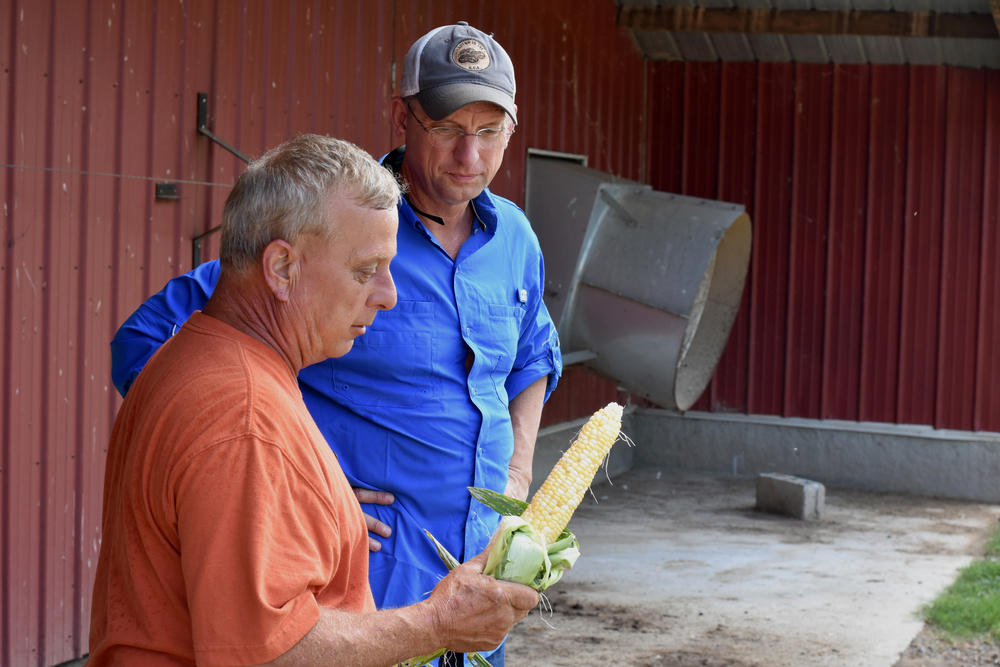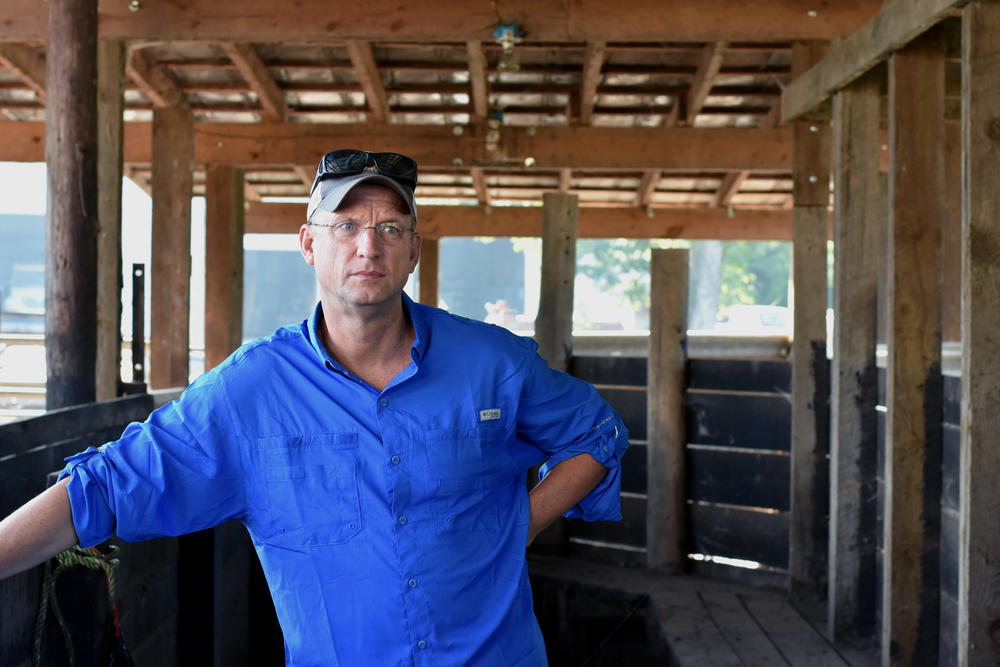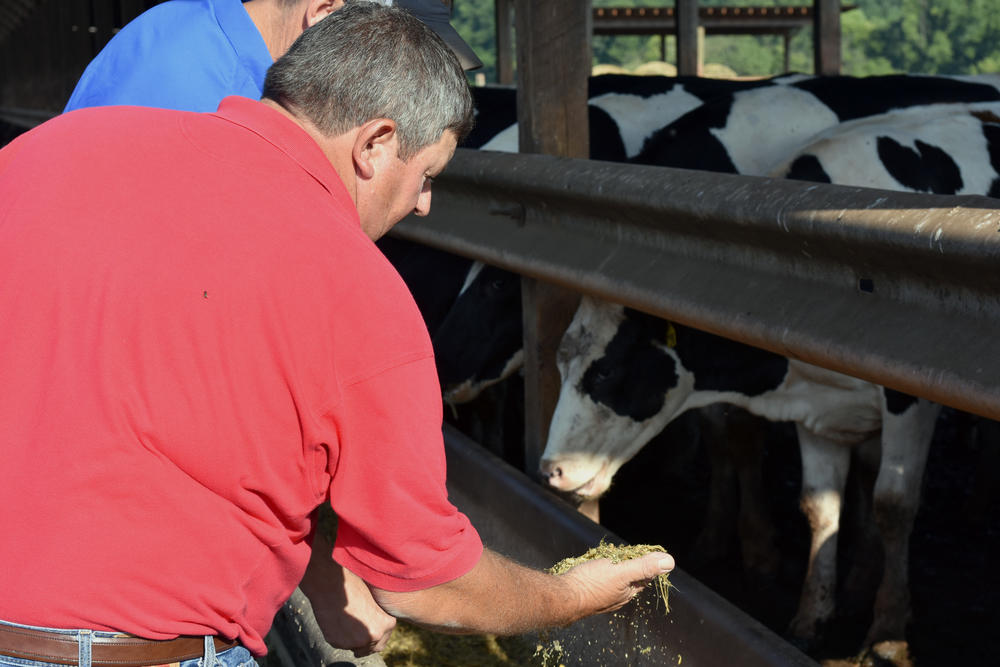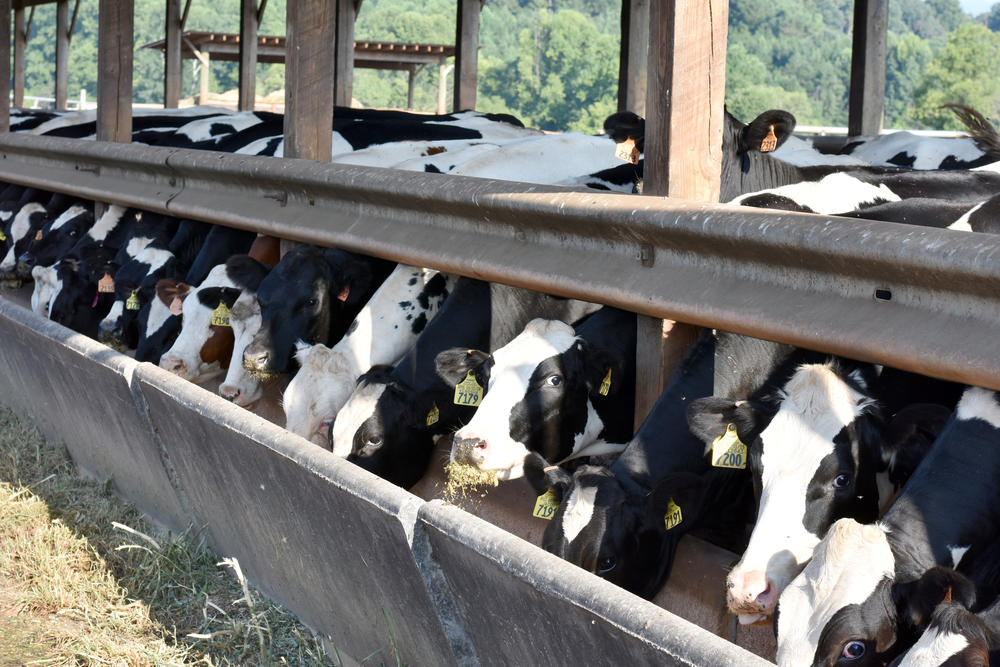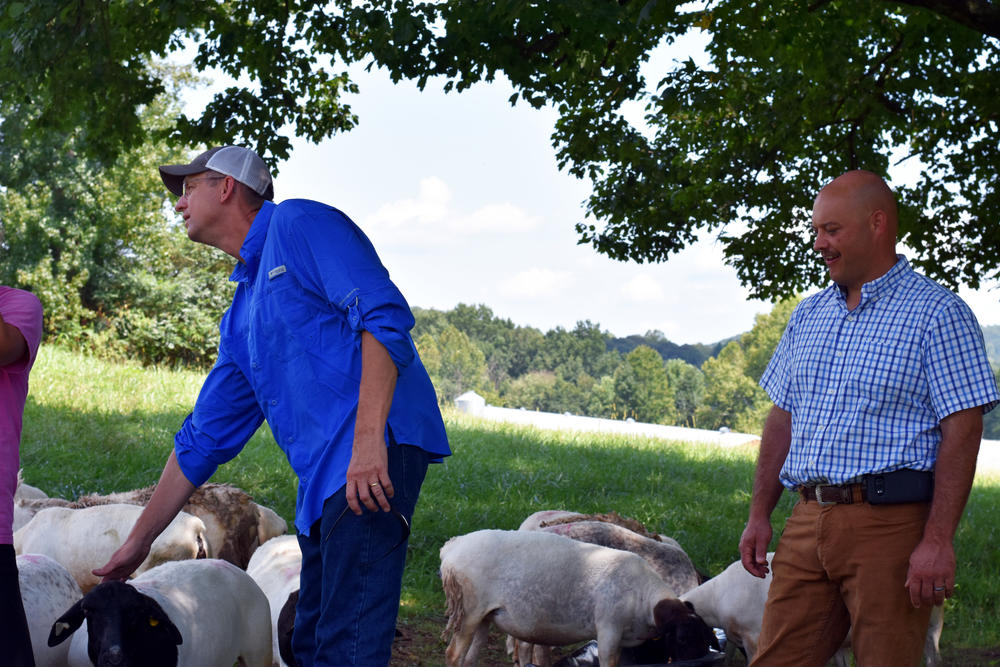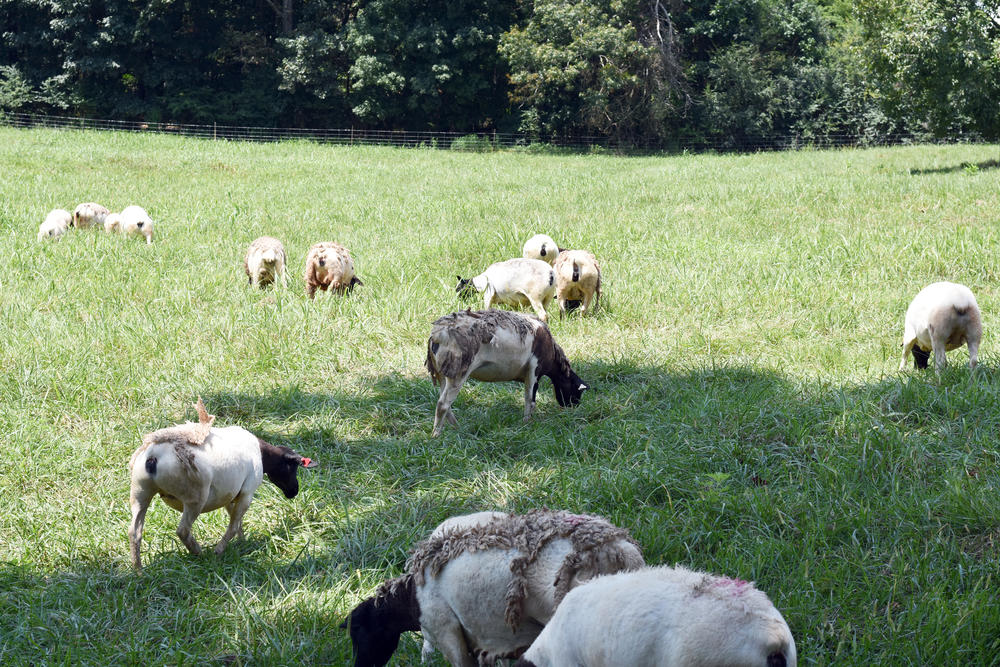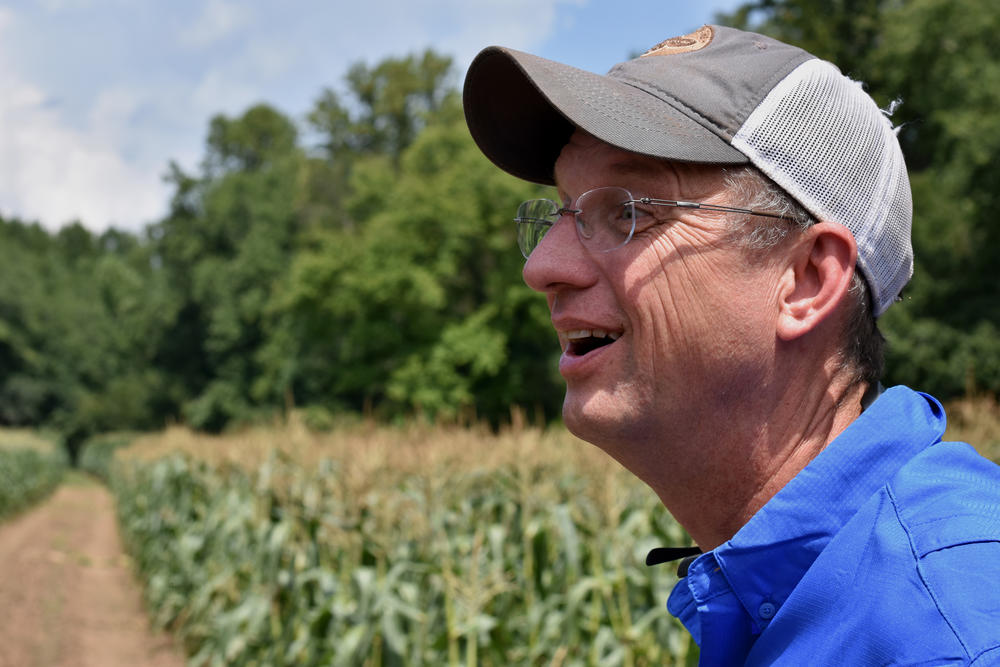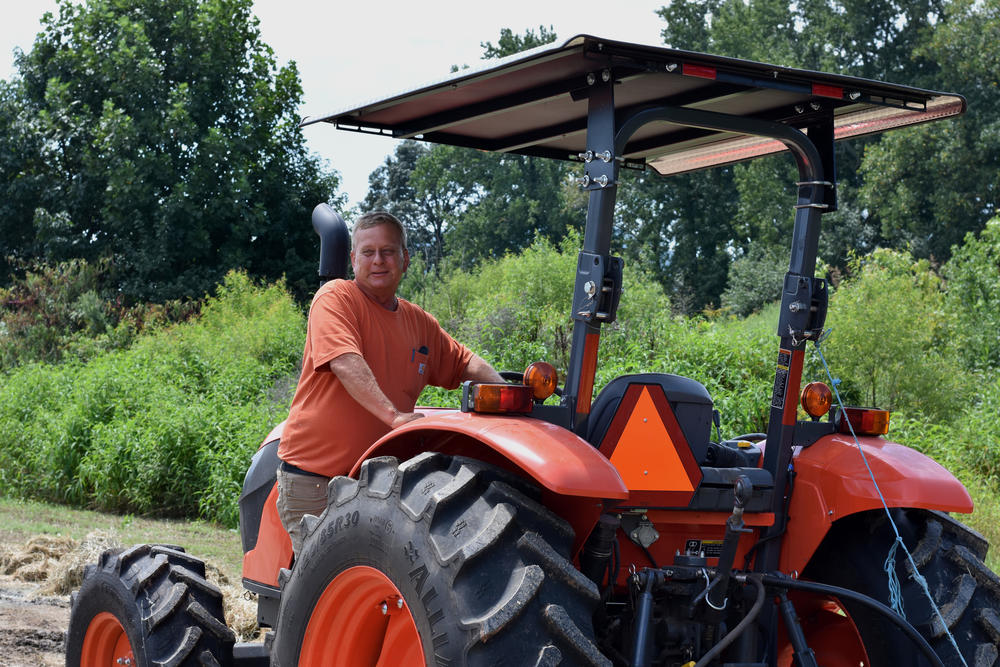Section Branding
Header Content
North Georgia Farmers Share Concerns With Rep. Doug Collins
Primary Content
Washington D.C. is a long way from White County, Georgia. Sometimes, that distance means the needs of constituents can get lost amid partisan squabbles on Capitol Hill.
During the summer recess, 9th District Republican Rep. Doug Collins (R-Gainesville) went back to his roots – and his district – to hear firsthand what north Georgia farmers say Congress can do to make their lives better.Farmers across the country have many concerns about their place in today’s economy and uncertainty of what comes next. In Georgia’s 9th Congressional District covering the northeast part of the state, that’s no exception. GPB's Stephen Fowler reports.
If you watch any national cable news, you may know Collins as the fast-talking, hard-charging Congressman who made headlines riffing on the Mueller report as a ranking member of the House Judiciary Committee, or maybe for his frustration about immigration and the Southern border.
But on a recent August day, Collins was not in the land of soundbites and partisanship. He could be found behind the wheel of a John Deere 7800 Forage Harvester cutting sileage in a sweeping green field of corn.
It was a sunny morning at London Farms, a family-owned operation in Cleveland, tucked into the foothills of the Blue Ridge Mountains 80 miles northeast of Atlanta.
The Georgia Republican has represented the 9th Congressional District, which includes the farm, in the U.S. House since 2013.
While Congress is in recess, Collins visited several farms to hear firsthand the problems farmers face and potential solutions he could offer. The farms are in White County, home to three state parks and mountains, waterfalls and wineries and about 1,100 farming jobs that have more than a $100 million impact on the state’s economy.
Collins said farmers are an especially important constituency in the mostly-rural district, which runs from Blue Ridge to Elberton. It gives him a different sort of insight and responsibility that many other lawmakers do not have, even in Georgia.
“My district doesn’t look anything like the 6th, 5th, 3rd, half the districts in Georgia,” he said. “They don’t have that ag issue; they have the growth, urban sprawl issue.”
He also likes to remind people that his district is second only to the 8th Congressional District in South Georgia in total farm-related income in the state.
That includes things like cows, which London Farms owner Stanley London showed on a driving tour of his farm.
“These cattle here are all dairy cattle,” he gestured, pointing out Holsteins, a Jersey and a Brown Swiss crossbreed. “Most of the cattle we buy and sell are in the Southeast.”
London’s total operation spans more than 850 verdant acres, something he started with his father and currently works with his son. His biggest concern for the Congressman is the federal estate tax and making sure the farm can stay in the family once he dies.
“Doug, you’ve got to always help us on that,” London said. “I mean, if you work all your life and put all this equity up, it ain't right for the government to tax it.”
Collins’ next meeting was in a church fellowship hall, which was a comfortable place for a member of Congress who is also a Baptist preacher.
Here, he still talked just as fast but with a little more twang, about how he handles Washington D.C. politics.
“I said, ‘You ain't never sat through a Baptist deacon’s meeting…’ I love my deacons in this room,” he quipped. “God bless you, as a pastor, we know those times… they're fun times, ‘cause you come together and you find out, you know, about people and making life work.”
At the Georgia Farm Bureau’s town hall, he heard a variety of questions and issues that are affecting the livelihood of Georgia farmers from high-speed internet access to rising electricity costs to immigration.
Collins supports an expanded border wall and also wants immigration reform that works for people who do the manual labor on Georgia farms.
“The question is, how [do] we get those folks in and how [do] we get them here to work, most of which don't want to stay here,” he said. “They want to just come work and go back and forth and have that ability, we've got to find a way to do that.”
Some of the questions at the town hall came from Nathan Nix of Double N farms. Later that day, he showed Collins some of his 70-acre, third-generation family farm in White County.
Like other farms here, this used to be primarily cattle and poultry. But the Nix family sold their cows and have turned to sheep and beekeeping to stay afloat.
“The reason we got into sheep, the reason we got into bees is [that] we have farmed, I guess you could say, ‘big,’ but we have not farmed profitable,” he said.
The Nixes said they can make more three or four times as much per acre with sheep than they can with cows.
But it’s still expensive to do business, especially for smaller operations that don’t have the scale of farms as South Georgia and other parts of the United States. From Collins, they want an eye on protecting family-owned farms trying to make it in an evolving global economy.
At Seabolt Farms on the other side of town, scale provides a different kind of problem for Paul Seabolt.
He has well over 1,000 acres of land for poultry, hay, grazing pastures and sweet corn, and not a lot of help with the harvest.
In the past, his parents, aunt and uncle have pitched in. But now, they’re in their 80s.
Seabolt said it’s hard to put young people to work in a job that pays $10 to $12 an hour.
"The younger generation doesn’t understand that farming is a long haul… and I understand that 100%,” he said. “It takes a lot of love to be a farmer nowadays…because seems like you have to give more than you take.”
Soon Collins will be back in Washington, carrying with him the stories of farmers like the Londons, the Nixes and Paul Seabolt.
After sending the Congressman off to his next visit, the 57-year-old Seabolt sits sweating in the midday sun as he drives his pickup truck back to his property.
Like the others, farming has been his whole life and he’s proud of the work he has done.
“But I am tired,” he said, taking a long pause as the truck’s roaring air conditioning cuts through the silence. “I'm tired because I haven't got enough help… and there's too much to do.”
